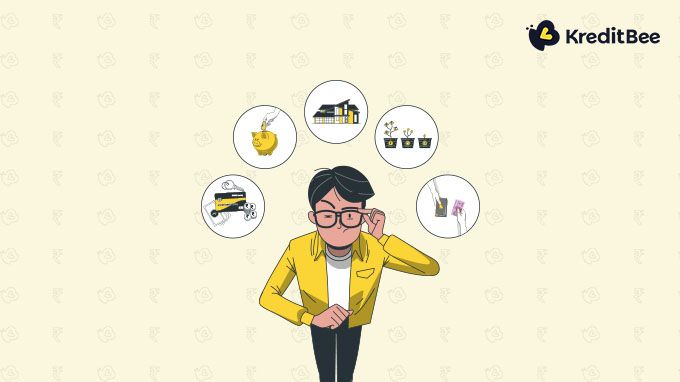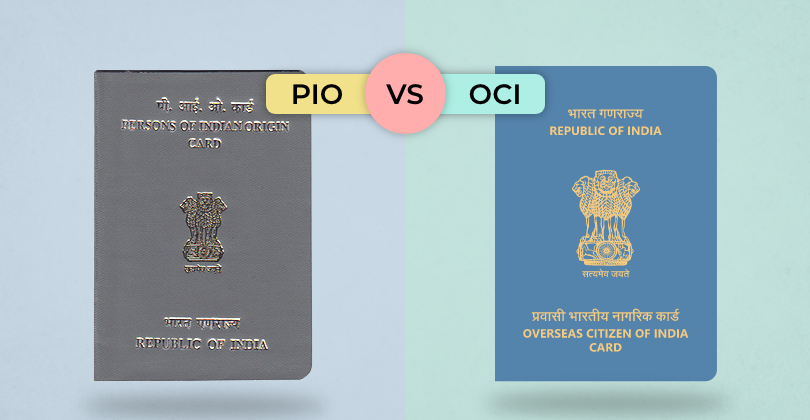Are you of Indian origin and living abroad? You've probably come across terms like PIO and OCI. These cards offer different benefits, but it can
Once you start earning, you’ll find yourself bombarded by financial advice from almost everyone around you. Everywhere you look, there will be financial advice to be found, only if you’re willing to listen. But how do you know whom to trust? Should you follow the wisdom of your parents or hire the services of money management experts? Or should you do where the entire does – look for answers on the internet? Managing your money effectively can be quite overwhelming, and it may leave you with more questions than answers. ‘Am I too young to start investing?’ or ‘How do I find the best personal loan provider?’ are just two of a hundred questions that may cross your mind. But before you know what to do, it’s equally important to know what to avoid. Here are five pervasive money myths you should stay away from:
1.Your Bank Account is Best for Saving
Our parents were able to earn hefty interest just by parking their money in a savings account. Unfortunately, that’s nowhere near the case anymore, thanks to the COVID-19 pandemic. As a result of the pandemic and the subsequent lockdown last year, all economic activity came to a halt for a considerable amount of time. The RBI also slashed the Repo Rate multiple times since March 2020. This means that all banks can access capital from them at lower rates. This, in turn, led to both private and public sector banks slashing interest rates on savings accounts and FDs. There’s no incentive for them to provide you with higher interest for saving your money, because the overall demand for personal loans/personal loan providers have fallen.
📗 Related Blog- Managing Your Finances in Times of Economic Distress
2.Scrimping and Saving is the Best
Another popular money myth out there is that scrimping and saving is good in the long run. But simply pinching pennies and scrimping whenever possible does very little for you and your household. Instead, you need to focus on increasing how much money you’re making. Think about it – you’ll be able to lead a much more comfortable life earning ₹50,000 every month than if you were earning just ₹25,000. In the second situation, chances are that you’d have to scrimp a lot anyway, and that can get very frustrating (considering how little of a difference it makes to your overall income). Focusing on increasing your overall income will help you in the long run, because you’ll be able to save adequately and take care of your needs and wants.
3.Minimum Payments are Enough
If this is something you follow or believe in, you should stay far away from credit cards and personal loan providers. First of all, you should only use your credit cards in emergencies, when you’ve exhausted all your other options. Otherwise, you should always try meeting your financial needs using your monthly income. Secondly, while using a credit card, only making the minimum due payment is the worst thing you can do to your personal finances. Your bank will simply continue charging you interest (because you didn't pay the due amount in full), and you'll be stuck in a vicious cycle.
4.You Can Only Save With a High Income
This particular money myth is the biggest deterrent to anyone trying to realize their maximum savings potential. Having a higher income doesn’t guarantee a higher level of savings every month. For all you know, you may be saddled with more financial responsibilities a few years down the line, which may restrict the amount you save. Having said that, you shouldn’t approach a personal loan provider just because you don’t have an emergency fund or ready savings. What you need to do is just start with what you have – even if it’s as low as ₹1,000 a month. Saving something is better than saving nothing at all, and once it becomes a habit, you’re set for life. You’ll automatically learn to increase the amount you save with every increase in your monthly income.
5.Buying a Home is Better Than Renting
This is one of the most pervasive money myths out there, as well as a hotly-debated topic. Both buying a home and renting one outcome with its own advantages. But the fact remains that each person's situation is different – what works for you may not work for your colleague. You may see no problem in approaching a personal loan provider for funds towards a home. However, your friend may hate the idea of being saddled with loan EMIs for the next 20-25 years. Another friend may simply choose to rent a flat because that's all he can do with his current income levels. So, the takeaway here is to do what's right for you.
📗 Related Blog- 4 Ways to Save Money so that You Never Go Broke Again
Wrap Up
With the sheer amount of money management advice available across the internet (and several ‘well- meaning’ relatives), it can get hard to understand what to do. One general rule that will hold you in good stead is to stay away from unnecessary debt as much as possible. If you do have to take out a loan, ensure it’s only for an emergency and from the most affordable personal loan provider you can find. If you're looking for an affordable personal finance company, KreditBee is an option you can consider. Our entire loan application process is quick and completely online on the KreditBee mobile app, from profile creation to disbursal. You just need to download the app from Google Play, complete your profile, and relax. If you wish to learn more about our personal loans, please write to us at [email protected].
AUTHOR
KreditBee As a market leader in the Fintech industry, we strive to bring you the best information to help you manage finances better. These blogs aim to make complicated monetary matters a whole lot simpler.







